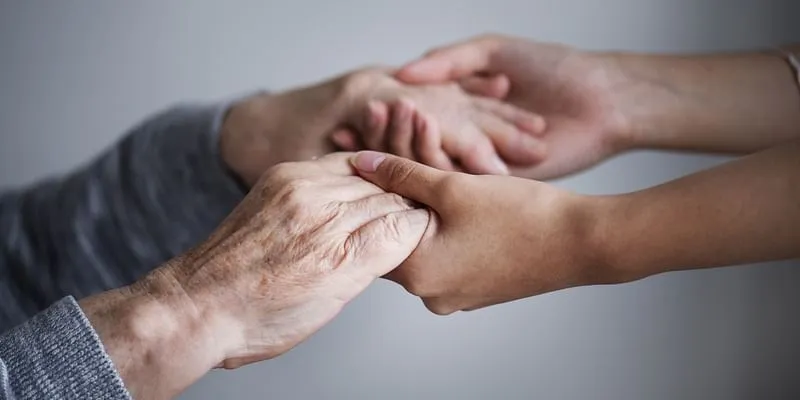Eye care: Why are seniors more likely to suffer from eye diseases
Age brings certain changes that can weaken our eyes and vision. Here are some eye problems that can affect people aged 50 or above.
As people grow old, the risk of particular eye diseases and conditions increases significantly and becomes only worse with time.
According to the World Health Organisation (WHO), nearly 285 million people globally are visually impaired. Almost 82% suffering from blindness are aged 50 or above.
In fact, over 137 million Indians have near vision loss, and 79 million people suffer from impairment. And, understanding the warning signs of age-related eye issues and seeking professional care can safeguard our vision.
Age brings certain changes that can weaken our eyes and vision. Here are some eye problems that affect can people aged 50 or above.

Dry eyes
Dry eyes occur when the tear glands cannot produce enough tears or make poor-quality tears. The condition can be quite uncomforting, leading to itching, burning, or partial loss of vision.
Age-related macular degeneration (ADM)
This disease gets worse over time—it’s one of the leading causes of severe vision loss in people over the age of 60.
The condition occurs when the central portion of the retina—also known as the macula—wears down. Although the disease usually doesn’t lead to blindness, it can cause serious vision problems.
Glaucoma
The disease damages the optic nerve, crucial for good vision, usually resulting from excessively high pressure in the eyes.
Glaucoma is more common among older adults, and it is one of the major causes of blindness in people over 60 years.
Cataracts
A cataract occurs when the eye's natural lens becomes cloudy. Proteins in the lens break down and cause things to look hazy, blurry, or less colourful.
The condition is also one of the most significant reasons for nearly 50-80% of bilateral blindness in India.
Eye tests essential for seniors
Eye diseases resulting from age need to be diagnosed through routine exams performed by an ophthalmologist. Here are some tests that every person should undergo:
- Visual acuity test: The lettered eye chart test measures how well a person can see at different distances.
- Pupil dilation: Initially, the ophthalmologist puts drops in the eye to widen the pupil, which allows them to get a good view of the retina and look for signs of disease.
- Tonometry: This test determines the fluid pressure inside the eye. Among various methods used, the “air puff” test is the most common one for screening high intraocular pressure.
Take care of your eyes at home
Senior citizens can take care of their eyes with simple home remedies with no side effects. These are:
- Consuming foods high in antioxidants, beta-carotene, and lutein such as sweet potatoes, carrots, spinach, squash, broccoli, and kale. And, Vitamin C-rich foods such as kiwis, strawberries, red bell peppers, papayas, and oranges, can lower the risk of AMD in seniors.
- Lowering sugar intake can also help avoid eye problems for many senior citizens.
- More importantly, wearing a hat with a brim when outside and UV-blocking sunglasses to protect the eyes from strong ultraviolet rays is imperative. Sunglasses that wrap over the eyes is particularly advised for elder people.
- Ageing and smoking don't mix well. The risk of macular degeneration is 2.5 to 3.5X higher among people who smoke. In fact, the chance of developing AMD increases 5.5X for those above 80 years and who smoke.
- Daily exercise leaves a great impact on overall health, and so on the eyes. Senior citizens should daily exercise, including eye exercises such as the 20-20-20 rule, rolling the eyes, etc.
- Watching TV for longer hours is not advised. Relax your eyes by closing them for a few minutes and splashing water in the morning.
Final say
The majority of age-related eye disorders require early intervention to prevent long-lasting damage, and senior people should get a comprehensive eye exam every one to two years.
Depending on their age, and especially for diseases like AMD and glaucoma, eye exams become imperative as they don't exhibit any symptoms in the early stages.
Edited by Suman Singh
(Disclaimer: The views and opinions expressed in this article are those of the author and do not necessarily reflect the views of YourStory.)








